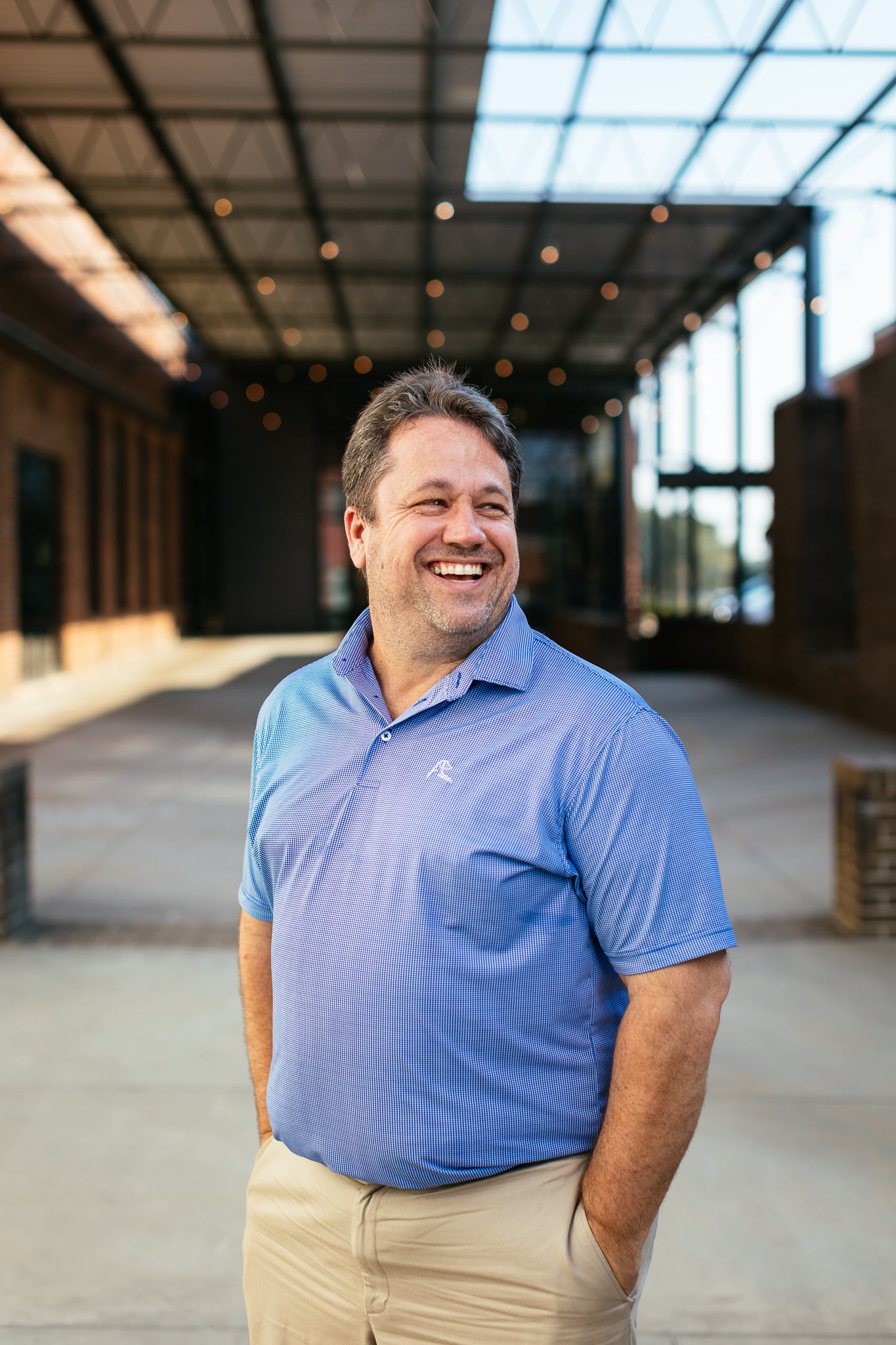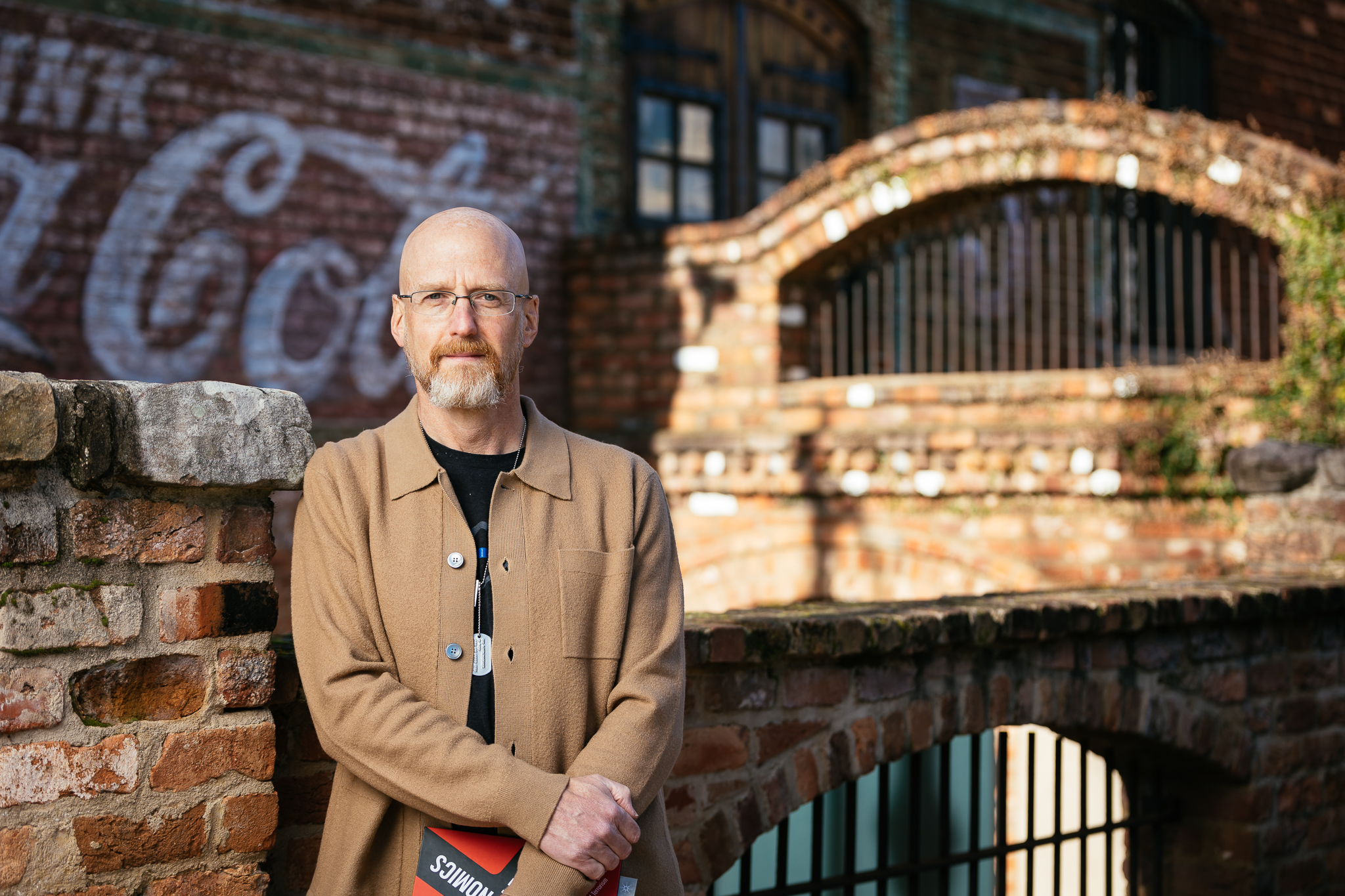Ryan Szrama on When [Not] to Pivot
Scaling a company to multi-million dollar revenue meant Ryan Szrama had a decision to make. His answer was to not change, but stay true to his career...
3 min read
Written by Caroline Jennings, Nov 16, 2021

This post is part of The Founder Factor, where we bring you behind the scenes with South Carolina’s most impactful entrepreneurs so that you can discover the strategies, ideas, and mindsets you need to unlock your next business breakthrough.

He didn’t think much of it when Karen asked him to help the clinic develop some sort of program that could automate the label-making process for their methadone bottles. He had always loved solving problems and helping people, so he jumped right in.
Essex’s label-making system was a huge success. After Karen’s team implemented it at their clinic, other clinics in the area started to reach out asking if they could buy the product, too.
“I was only 24,” Essex says. “I didn’t know a single thing about contracts or pricing.” Like many early entrepreneurs, he significantly underestimated the amount of effort each customer would require and the number of new features he would need to add over time.
Over the next few years, as Essex continued incorporating feedback from clinics, his label-making system evolved into something that resembled a miniature Electronic Medical Record (EMR) for methadone clinics. That’s when Methasoft – which exists today as part of a larger suite of methadone-related products known as Netalytics – was born.

When Essex launched Methasoft in 1995, even more clinics started calling him and requesting demos. He landed clinic after clinic, doubling his price each time. When pitching to a clinic in northern Georgia, he attempted to double the price yet again. The customer laughed in his face.
“Funny enough, all four of those clinics – even that last one – are still with us today,” Essex says. Apparently, the owner of the fourth clinic told Essex years later that he had refused the asking price only because Essex had looked down when he presented it; there was no conviction in his eyes. “I’ve always kept that lesson in mind, especially now that I have to pay my employees,” he says. “I have to get the prices I quote because I have to pay my people.”
By 2001, Essex had secured 6 total customers – a remarkable feat considering his only marketing tactic was attending conferences and waiting for people to call him. Not to mention, he was still working a full-time job ‘on the side.’

In November of that year, Essex reached an impasse: he had run out of vacation days. That meant no more conferences and no more sales.
“It was in that moment I realized I had to decide – is this opportunity real or not?” Essex recalls. Needless to say, it was a tough decision. No one was quitting their tech jobs in 2001 given the state of the world then. Plus, Essex and his wife had just bought a house and needed to pay off their mortgage. “Despite all of that, I knew it was time. I had to quit my job and focus on the company.”
Essex’s decision quickly paid off. Under his leadership, the Methasoft team closed a huge deal with a national pharmaceutical company that had been looking for a partner in the industry. The company came on board as Methasoft’s sales arm and took them from 6 clinics to 34 overnight. Later that year, the team leased an office in downtown Greenville, SC (where Essex and his wife had relocated) and brought on a team of developers. “Once we started growing, we just kept going,” Essex says. “It was crazy.”
But for Essex, the goal was never prestige or profit. He just wanted to help as many people as possible. To that end, in 2019, he determined it was time for yet another business level-up. He decided to pursue a partnership with a Private Equity partner that he thought could help the company figure out how to strategically grow.

The private equity deal closed on February 21, 2020 – just days before the Dow Jones dropped 1000 points and the world came to a COVID-induced standstill. “Timing-wise, I don’t think I could have gotten it any better,” Essex laughs.
Yet again, this deal unlocked another massive growth opportunity for the company. This year, under the private equity firm’s guidance, Netalytics acquired one of its biggest competitors. Today, they have 60 employees and 60% of the market.
“To say it’s been a learning experience is an understatement. I never knew the amount of perseverance I would need,” Essex says. For nearly a decade, Essex was settling for a much lower salary than what he would have been paid if he had stuck with his tech job, with longer hours and more stress. “There were plenty of times I considered quitting, but if I had, where would I be today?”
Despite the company’s ongoing success, Essex has never lost sight of his original goal: using his skills to make the world a better place. “Starting out, I never had a grand plan,” Essex admits. “I just kept trying to solve problems. And now, that’s turned into what I consider success.”

Follow Mark and his story on LinkedIn, or find Netalytics on the web at Netalytics.com.
Designli leads clients through the design and development of complex digital products, bringing startups and entrepreneurs from “Vision to Version 1.” Ready to bring an app or web-app to life? We’re here to help.
The Founder Factor is brought to you by Designli (South Carolina’s top app development firm) and Word of Web (your partner in website strategy and design). Follow our content here on the Designli blog, or on YouTube, Spotify, or wherever you get your podcasts.
Subscribe to our newsletter.
![Ryan Szrama on When [Not] to Pivot](https://designli.co/hubfs/Imported_Blog_Media/Ryan-Szrama-Web-Quality-29.jpg)
Scaling a company to multi-million dollar revenue meant Ryan Szrama had a decision to make. His answer was to not change, but stay true to his career...

John Warner has four decades of insight and experience in innovation & entrepreneurship. He shares the foundational business strategies that have...

A self-proclaimed student of human behavior, Shiffman uses his passion for people and his knack for innovation to push industry technology forward...